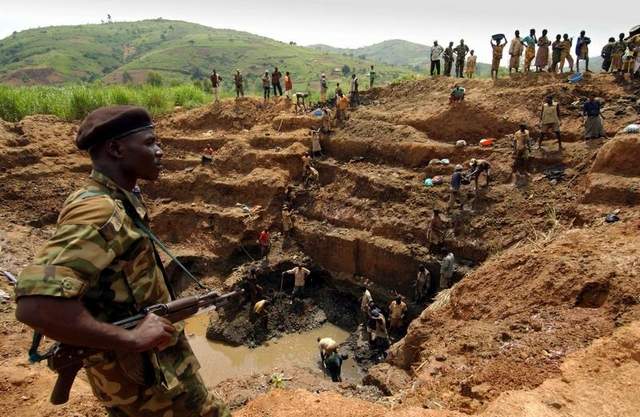Failure to understand a peoples’ needs and desires is unfortunately a common error, which jeopardizes governments and businesses ability to assist and partner with them. This phenomenon creates an ideal environmental for the law of unintended consequences to present itself. As a case in point, the Washington Post published an article about the effects of recent U.S. legislation on “conflict minerals” on Congolese communities in the eastern provinces of the Democratic Republic of Congo (DRC). The area is located in Africa’s Lake District along the border area of Rwanda, Burundi, Uganda, and Tanzania and is endowed with mineral riches. It has also historically provided the economic base for several revolutionary organizations including the movement that overthrew Zaire’s (DRC’s previous name) tyrannical President Mobutu Sese Seko in the late 1990s.
The conflict minerals law was discussed in Congress for years, was enacted by many well-intentioned Congressmen, implemented by well-intentioned regulators, and is being followed by law-abiding businesses. As the article explains, the recent legislation, a small part of the Dodd-Frank Financial Reform bill, was intended to force U.S. companies to ensure they do not have “conflict minerals” as part of their supply chain. Moreover, Africa’s Lake District was specifically targeted by the proponents of the law to effectively refute support for economic activity that encourages the use of child soldiers.
Unfortunately the creators of the law did not understand the society, cultural norms and the micro and macroeconomic dynamics of the region. The law has had a disastrous effect on the local populace, driving down the price of ore, causing the closure of mines, and effectively enhancing the power base of the private warlord armies that the law was intended to limit. As a result, many people in the area blame the U.S. for the deteriorating economic conditions, and many believe the law was engineered to keep them in a perpetual state of morass and economic dependence. The failure by the law’s creators to understand the dynamics in the region and potential ramifications has now created arguably a bigger problem. The affected Congolese need practical economic opportunity if they are to escape local warlord power and create better lives for themselves and their children. What instead was forced on them was an American perspective for “good” business,” vis-à-vis an American economic model, which failed to understand their basic needs.
To truly know what a people want means knowing them genuinely and intimately – knowing their history, their culture, and their language – and then internalizing this and applying it to daily business. Everyone in the world has different identities and life experiences which shapes how we perceive the world. And though there may be absolute truths that bind us as a species, our needs and wants are dependent upon where we come from and is different for everyone, all over the world. There have been some positive outcomes of the law, but the negative may be overriding those positives – the law of unintended consequences rears its ugly head once again. Governments and companies need to better understand and appreciate cultural and economic dynamics or more examples of unintended consequences, at the expense of societies around the world, will continue to occur.

